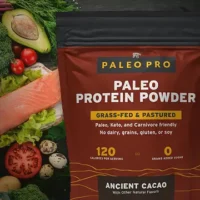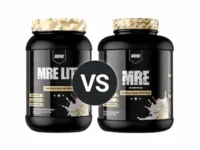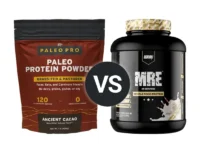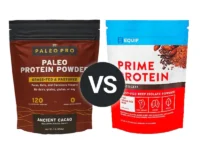Knowledge BaseYou're Questions Answered
How many calories are in beef protein powder?
Beef protein powder is a protein supplement derived from beef, typically processed to remove fats and carbohydrates, resulting in a concentrated protein source. It is often chosen by those seeking an alternative to dairy and plant-based proteins. Understanding the calorie content of beef protein powder is important for those who are mindful of their caloric intake or following specific dietary plans.
Calorie Content in Beef Protein Powder
The calorie content of beef protein powder can vary depending on the specific product and processing methods. On average, a typical 30-gram serving (about 1 scoop) of beef protein powder contains approximately 110 to 130 calories. This variation is influenced by the protein concentration and whether the product includes additional ingredients or additives1.
Breakdown of Nutritional Content
- Protein: A 30-gram serving typically provides around 20 to 25 grams of protein, which constitutes the majority of the caloric content.
- Carbohydrates: Beef protein powder generally contains very low amounts of carbohydrates, often less than 2 grams per serving.
- Fats: The fat content in beef protein powder is usually minimal, often less than 2 grams per serving, depending on the degree of processing and whether it includes collagen or other ingredients.
Benefits of Beef Protein Powder
In addition to being a high-quality protein source, beef protein powder offers several nutritional benefits:
- Complete Amino Acid Profile: Beef protein powder is a complete protein, providing all nine essential amino acids necessary for muscle growth, repair, and overall health2.
- Rich in Collagen: Many beef protein powders include collagen, which supports joint, skin, and gut health3.
- Hypoallergenic: Beef protein powder is free from common allergens such as dairy, soy, and gluten, making it a suitable option for individuals with allergies or sensitivities.
- Easy Digestion: The hydrolyzed form of beef protein is broken down into smaller peptides, which can enhance digestibility and absorption.
Usage and Considerations
Beef protein powder can be used in various ways, including in shakes, smoothies, and as an ingredient in cooking and baking. It is particularly beneficial for those looking for a non-dairy protein option that is rich in amino acids and collagen. When selecting a beef protein powder, it is important to review the product's nutritional profile and ingredient list to ensure it aligns with your dietary preferences and needs.
- Jäger, R., Kerksick, C. M., Campbell, B. I., Cribb, P. J., Wells, S. D., Skwiat, T. M., ... & Purpura, M. (2017). International Society of Sports Nutrition Position Stand: protein and exercise. Journal of the International Society of Sports Nutrition, 14(1), 20.
- Rutherfurd, S. M., Montoya, C. A., Zou, M. L., & Moughan, P. J. (2015). Digestible indispensable amino acid score (DIAAS) and digestible amino acids in animal and plant-based protein sources. Journal of Animal Science and Biotechnology, 6(1), 1-7.
- Shaw, G., Lee-Barthel, A., Ross, M. L., Wang, B., & Baar, K. (2017). Vitamin C–enriched gelatin supplementation before intermittent activity augments collagen synthesis. American Journal of Clinical Nutrition, 105(1), 136-143.
Related Questions
Related Reviews
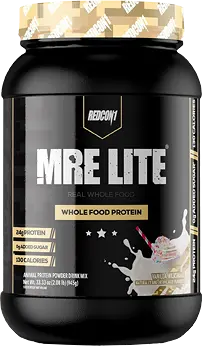
Your Answer
We are a participant in the Amazon Services LLC Associates Program, an affiliate advertising program designed to provide a means for us to earn fees by linking to Amazon.com and affiliated sites.


